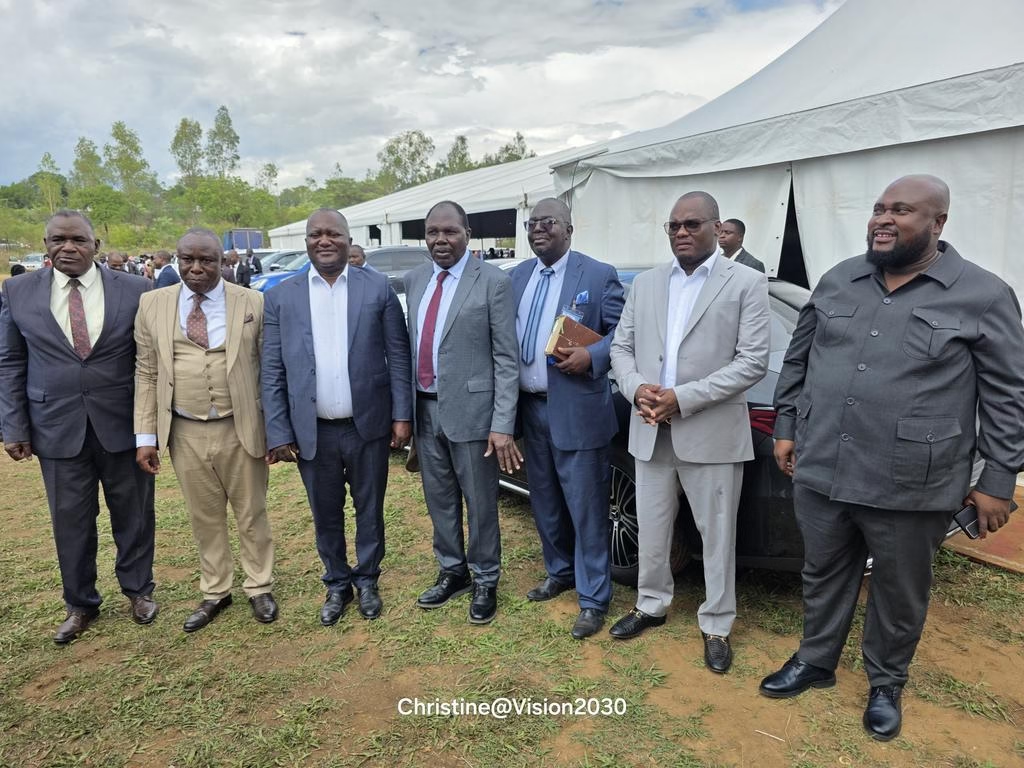
By Aldridge Dzvene
Presidential Investment Advisor Dr Paul Tungwarara has thrown down a bold challenge to the pulpit, telling congregants in Mashava that Zimbabwe will not reach Vision 2030 on roads and factories alone but on churches that unite, shape behaviour and turn faith into tangible nation building projects.
Addressing a packed church service in Mashava, Masvingo Province, Dr Tungwarara said churches must move in one spirit to guide the masses on values, preach love and work towards a shared national destiny. He urged the body of Christ to see itself not just as a spiritual refuge but as a frontline partner in driving people centred development that mirrors President Mnangagwa’s vision of an empowered, morally grounded society.
He hailed churches for the work they are already doing away from the spotlight, noting that long before some investors arrived, it was faith based institutions putting up classrooms, clinics and community centres in remote areas. That legacy, he said, must now be deepened and modernised, with churches using their vast networks to respond to today’s social crises, especially drug and substance abuse among the youth.
Dr Tungwarara stressed that the drug scourge cannot be defeated by police and policy alone, it demands a spiritual and moral counter offensive that only the church can lead with credibility. By mentoring young people, teaching discipline, promoting productive lifestyles and walking closely with struggling families, churches can close the gaps that drug peddlers exploit and help rescue a generation that Vision 2030 depends on.
To anchor his call, he pointed to big name examples that have already turned sermons into structures. He cited Zion Christian Church led by Bishop Nehemiah Mutendi, which runs schools and health facilities, proving that a church can be both a spiritual home and a service delivery engine. He referenced United Family International Church under Prophet Emmanuel Makandiwa which has invested in education through its school, and Prophetic Healing and Deliverance Ministries led by Prophet Walter Magaya which has developed stadiums and facilities that host sport, gatherings and youth activities.
He also highlighted ZAOGA FIF, whose network of schools across the country has been quietly absorbing thousands of learners and easing pressure on the public education system. These models, Dr Tungwarara argued, show what is possible when the pulpit embraces bricks, mortar and long term community infrastructure as part of its mission.
Far from flattery, his message to Mashava’s churches was a firm invitation to scale up, to collaborate across denominations and to see every congregation as a potential hub for skills training, counselling, rehabilitation and youth empowerment. Vision 2030, he said, needs that kind of grounded partnership, where government builds highways and policy frameworks while churches build people, values and safe spaces that hold communities together.
In Mashava, the challenge landed as both encouragement and provocation, a reminder that preaching love and unity is only the first step. The next is to convert prayer into projects, offerings into opportunities and faith into facilities that stand as permanent testimony that the church walked with the nation on its road to Vision 2030.




